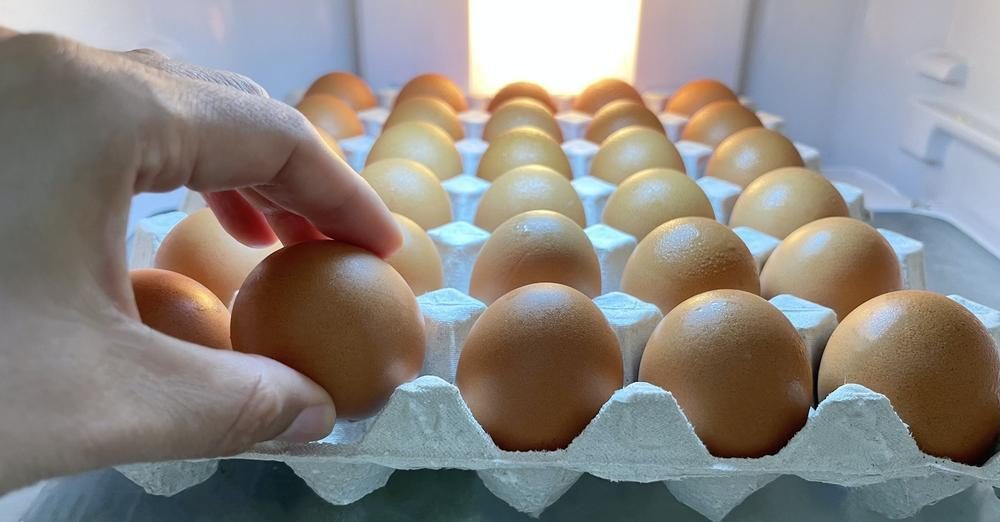;)
At the constantly low temperatures inside the fridge, the eggs remain fresh for very long as microbial activities, if present, are put on hold or completely eradicated.
Still, it is important to stress that everyone knows when an egg is no longer safe for consumption. This may be hard to do, but it is not impossible. One foolproof method is to know just how long eggs ate supposed to last, refrigerated, or otherwise.
How Long Do Eggs Last?

If properly packaged, an egg carton should be labeled with the expiration date of its contents. If yours don't come with any, look for the date of packaging (pack date), which should be on the side of every carton as mandated by the US Department of Agriculture.
The pack date may seem confusing at first because it is made up of merely three digits, but it's as easy as it comes.
According to the USDA:
"This three-digit code indicates the date of packaging, starting with January 1 as 001 and ending with December 31 as 365. These numbers represent the consecutive days of the year."
The regulation body further explains that eggs will last for four to five weeks after that packaging date, or three weeks after purchase, as long as they are stored correctly.
How To Store Your Eggs Properly

The USDA recommends placing your eggs in the fridge within 24 hours of bringing them home from the market, ideally in the refrigerator's coldest part rather than the door.
Note: Don't buy eggs that have been cracked at the store as they can quickly become contaminated.
Now, if you have stored your eggs in the fridge for way longer than they should be or if they have remained at room temperature too long, there are foolproof methods to detect spoilage. The most common (which doesn't require you to break the egg) is:
The Float Test

This is one of the most common methods you'd ever hear of. The test is done by plopping the eggs into a large bowl of water. If the egg sinks to the bottom, it is safe for consumption. If otherwise, don't be reluctant to throw them out if you want to avoid a distasteful scene!
;Resize,width=767;)
